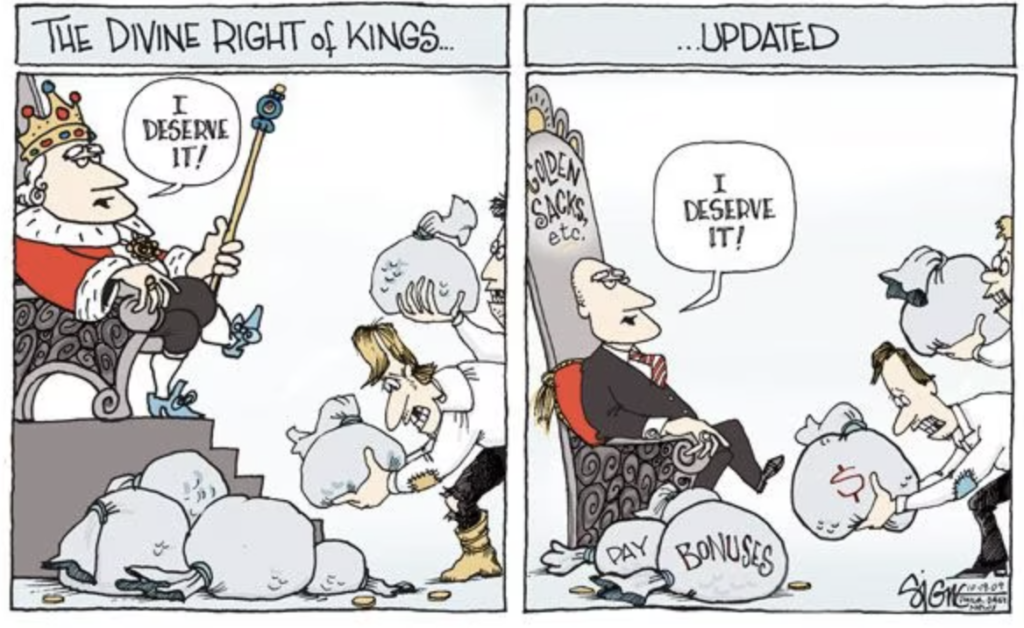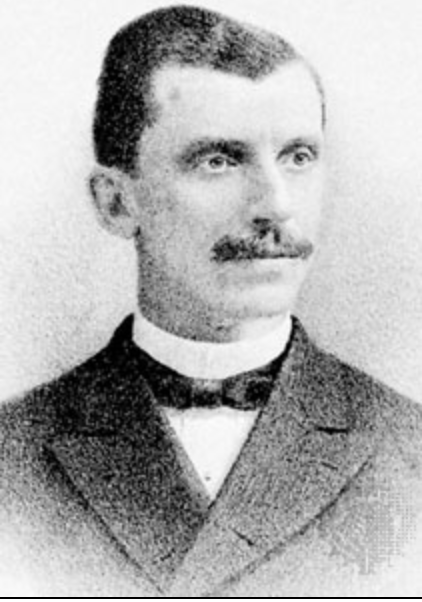Divine Right of Kings, in European history, a political doctrine in defense of monarchical absolutism which asserted that kings derived their authority from God and could not therefore be held accountable for their actions by any earthly authority such as a parliament.
That definition out of the Encyclopedia Brittanica refers to a belief going back hundreds and hundreds of years basically telling people that royal power was not anything that could be earned or pursued.
Kings were kings because God loved them more than ordinary people.
If you think it’s a belief out of the distant past, think again. You apparently have never heard of the Prosperity Gospel.

It may be an oversimplification, but basically the Prosperity Gospel says that rich people are rich because God loves them more than ordinary people.
And if God does love you enough, all you need is faith, positive thinking and, oh yes, donations to your favorite televangelist to make you rich, rich, rich beyond your wildest dreams.
Contrary to popular belief, that particular gospel did not begin with Joel Osteen, Oral Roberts or Jimmy Swaggart. It didn’t even begin with their hero, Elmer Gantry.
It actually dates back to the final years of the 19th century, and the idea was that if you were righteous enough and followed the will of God faithfully, the Lord would make you wealthy. At least in this country, what we now know as the Gilded Age was a glorious time for the extremely wealthy.
Imagine no income tax and no estate taxes.
If you made enough money, your fortune became almost self-perpetuating. One of the giants of that era, steel baron Andrew Carnegie, became something of a heretic to the robber barons. Carnegie said the rich should lead relatively modest lives and should give away most of their wealth through philanthropy. Those who didn’t give it away during their lifetime should have their estates taxes at confiscatory levels.
Then there was Russell Conwell, whose famous sermon “Acres of Diamonds” was delivered more than 5,000 times between 1900 and 1925. Conwell equated poverty with sin and insisted anyone could become rich through hard work. He didn’t claim belief would cause God to intervene, just that hard work was an expression of belief and the right kind of life.

That probably fits best with the bizarre respect we seem to have these days for people with money. We’re not only convinced that rich people deserve to be rich, but that people who aren’t rich are somehow undeserving and are lesser human beings.
Not wealthy? Then pray more and get that check into the mail to Joel Osteen.
The Texas televangelist is perhaps the biggest beneficiary of the Prosperity Gospel. Through books, lectures and television shows, Osteen has amassed a fortune estimated at $100 million. He lives a lifestyle that wouldn’t embarrass a rapper or a Kardashian.

As for those who don’t have enough, they’ve got religion. They wind up convinced that their reward will come in the afterlife, which is one reason Karl Marx called religion the opiate of the people. With preachers using the gospel to sedate them, they don’t feel the need to get involved in political movements that might result in better lives financially.
The whole prosperity thing is actually sort of sleazy, a “love Jesus and you’ll get money” deal. In fact, Christianity of this sort is all about being good and being rewarded for it. For all the prejudicial attacks on Jews for a so-called obsession with money, the basis of Judaism is that you do the right. thing because it’s the right thing. Not because you expect some reward for it.
Nobody has the right to be rich, especially when the only reason is that granddad built a better mousetrap.
